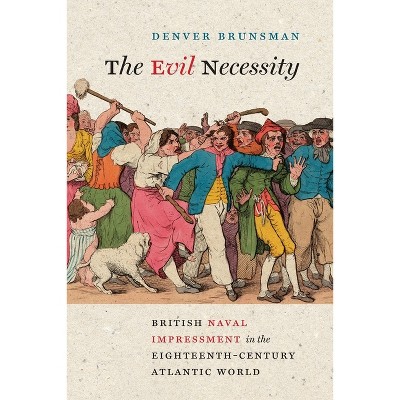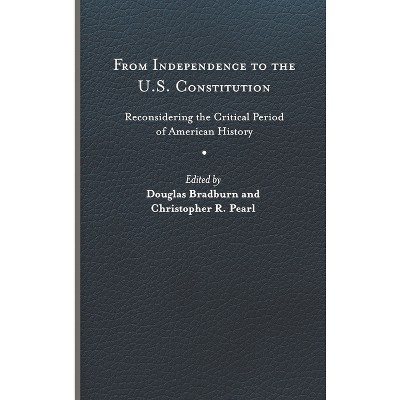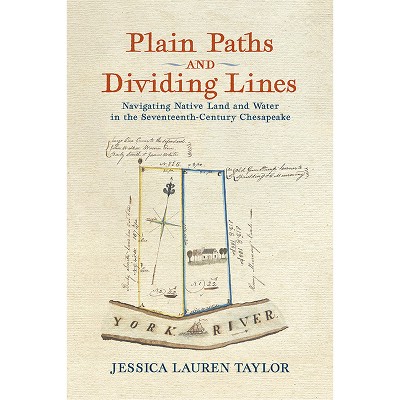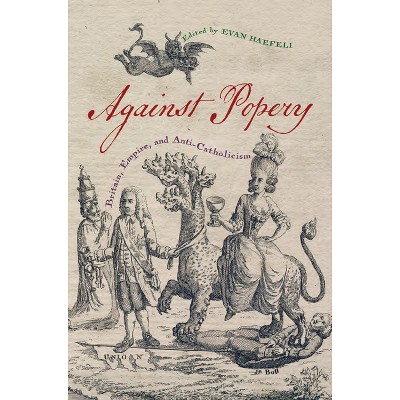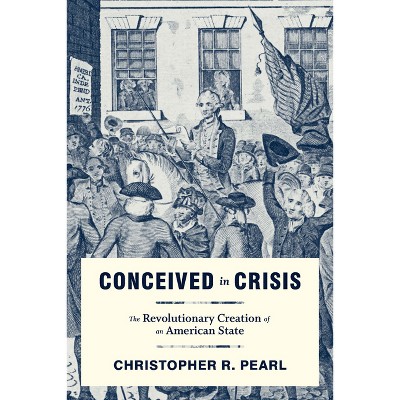Sponsored

To Organize the Sovereign People - (Early American Histories) by David W Houpt (Hardcover)
In Stock
Sponsored
About this item
Highlights
- This book explores the struggle to define self-government in the critical years following the Declaration of Independence, when Americans throughout the country looked to the Keystone State of Pennsylvania for guidance on political mobilization and the best ways to create a stable arrangement that could balance liberty with order.
- About the Author: David W. Houpt is Assistant Professor of History at the University of North Carolina Wilmington.
- 264 Pages
- History, United States
- Series Name: Early American Histories
Description
About the Book
"This book explores the struggle to define the meaning of self-government in Pennsylvania in the years following the Declaration of Independence. In 1776, radicals mobilized the people to overthrow the Colonial Assembly and adopt a new constitution, one that which established that average citizens always retained the right to exercise their sovereignty directly. While highly participatory, this system proved unwieldy and chaotic. In the 1780s, political moderates learned to harness various forms of "popular" mobilization to establish themselves as the legitimate spokesmen of the entire citizenry. Thus the very meaning of democracy changed, solidifying around party politics and elections, enabling a small group of white men to set the framework for what self-government means in the United States to this day"--Book Synopsis
This book explores the struggle to define self-government in the critical years following the Declaration of Independence, when Americans throughout the country looked to the Keystone State of Pennsylvania for guidance on political mobilization and the best ways to create a stable arrangement that could balance liberty with order. In 1776 radicals mobilized the people to overthrow the Colonial Assembly and adopt a new constitution, one that asserted average citizens' rights to exercise their sovereignty directly not only through elections but also through town meeting, petitions, speeches, parades, and even political violence. Although highly democratic, this system proved unwieldy and chaotic.
David Houpt finds that over the course of the 1780s, a relatively small group of middling and elite Pennsylvanians learned to harness these various forms of "popular" mobilization to establish themselves as the legitimate spokesmen of the entire citizenry. In examining this process, he provides a granular account of how the meaning of democracy changed, solidifying around party politics and elections, and how a small group of white men succeeded in setting the framework for what self-government means in the United States to this day.
Review Quotes
To Organize the Sovereign People offers a clear and direct overview of the use of differing types of political mobilization and activity in early republic Pennsylvania. . . Houpt's conclusions mesh well with the wider story of American politics in the transition between the revolutionary era and the first decades of the early republic. --H-Early-America
Historians have long maintained that after the highwater mark of its 1776 constitution, a conservative backlash against democracy ensued in Pennsyvania. Challenging this narrative of declension, David Houpt unearths evidence demonstrating the continuing vitality of politics out of doors and in the streets. With the emergence of political parties, Federalists and Republicans channeled popular participation into powerful new forms of political mobilization. In rewriting Pennsylvania history, Houpt convincingly reconceptualizes the larger story of the rise of democratic politics from the time of the American Revolution through the early 1800s.
--Rosemarie Zagarri, George Mason University, author of The Politics of Size: Representation in the United States, 1776 1850Houpt makes an important contribution to our understanding of the history of democratic self-government. His process-oriented, analytical narrative is the kind of history we now so desperately need. He has illuminated the political pathway real Pennsylvanians followed in real, historical time to create a government for themselves--and to govern those partially, if not fully excluded from their citizen body. There is much to be learned from this history in our own time, as we struggle to define who we are as a people and how (or if) we can fulfill our own (poorly defined) democratic aspirations.
--Peter S. Onuf, University of Virginia, author of Jefferson's Empire: The Language of American NationhoodFocusing on Pennsylvania from 1774 and 1808, Houpt provides an adept critical narrative of the state's political wranglings over Independence, its first constitution, the United States Constitution, and early national disputes among Federalists, Republicans, Quids, and Democrats. He makes skilled and thorough use of manuscripts, newspapers, pamphlets, government documents, and election returns. He is extremely deft at synthesizing the machinations of a complex era and presenting it with succinct clarity.--North Carolina Historical Review
Sheds light on a significant facet of revolutionary-era political culture in Pennsylvania and perhaps in other states by centering the rhetoric and practices of political mobilization.--The American Historical Review
About the Author
David W. Houpt is Assistant Professor of History at the University of North Carolina Wilmington.







